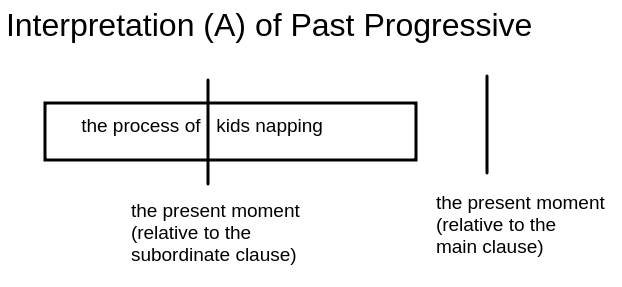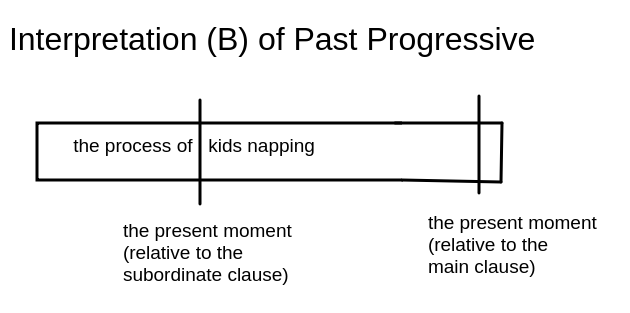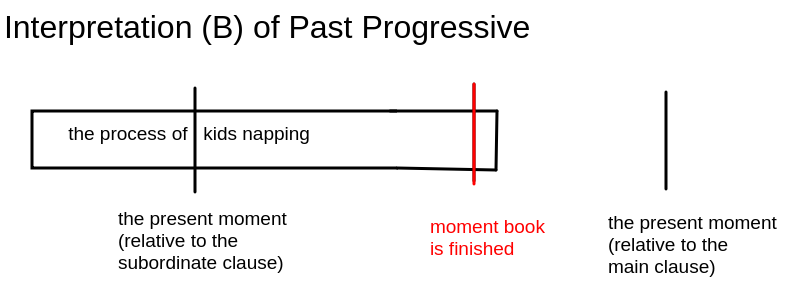I know that the tense of Japanese subordinate clauses is always relative to the time the main clause happens (which is different than in English). But consider the following:
子供が[昼寝]{ひるね}をしていた
Consider now two interpretations of this statement:
- Interpretation (A).
- Interpretation (B).
Are both (A) and (B) potentially correct interpretations of the sentence? The reason I ask this is because I'm trying to understand how
子供が昼寝をしていた間に、本を読み終えた。
While the kids were taking a nap, I finished reading a book.
can possibly make sense without interpretation (B) being permissible. As I see it:
- The sentence under interpretation (A). This doesn't make any sense:
2. The sentence under interpretation (B). This does seem to make sense:
So the only way this sentence possibly makes sense is if we force interpretation (B) on 「子供が昼寝をしていた」, no?
NOTE: This sentence is from a tutorial on ~ていた間に from IMABI.



